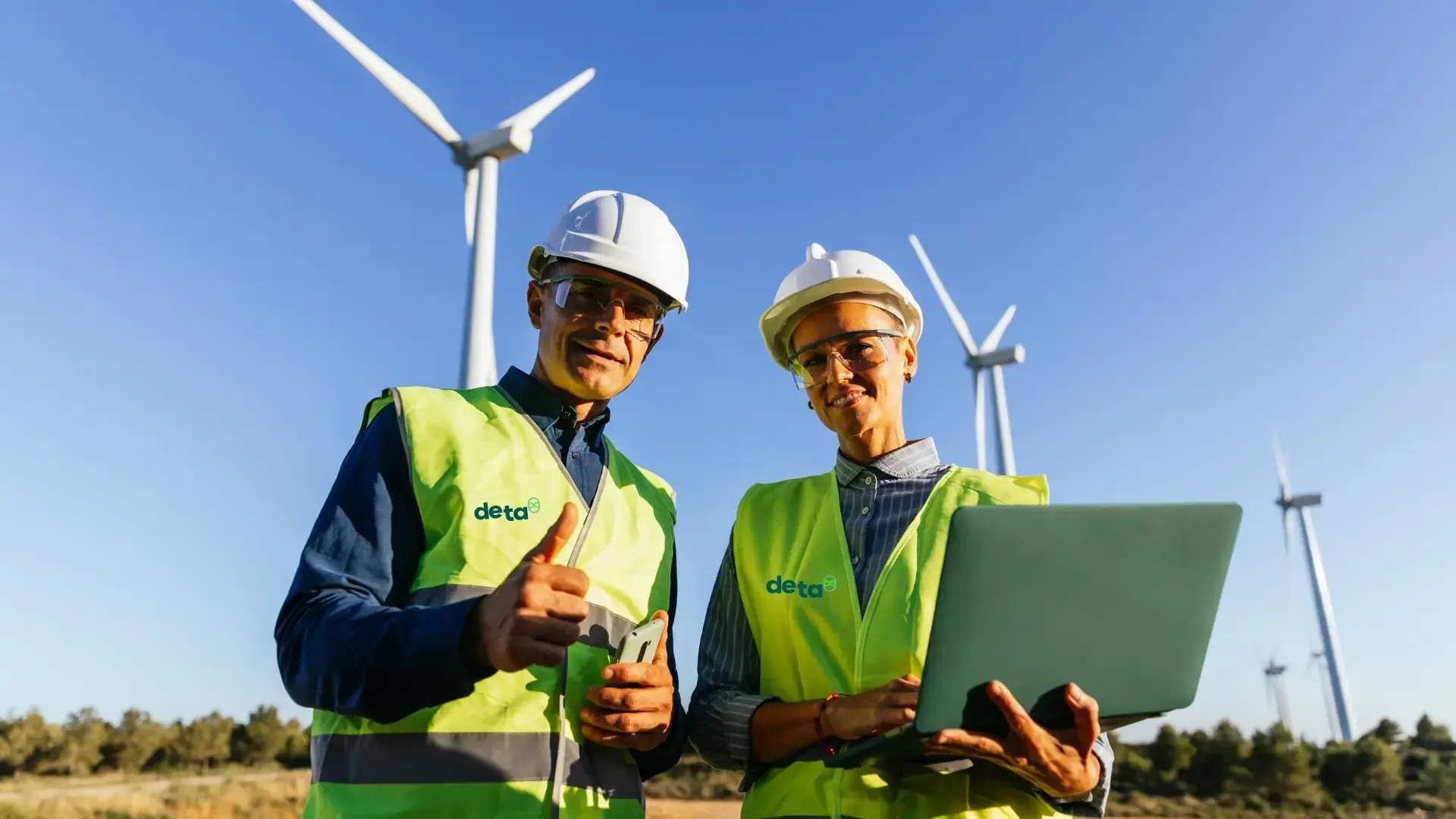Step towards success: carbon footprint management for businesses
The demands on businesses have evolved beyond recognition over the past couple of decades. The business landscape has transformed almost beyond recognition. This development driven by several key factors, including the rise of digital technology, the increasing importance of social responsibility, the growing awareness of environmental issues and a comprehensive shift in stakeholder and customer expectations.
Organisations are no longer judged solely on their financial performance but also on their social and environmental impact. Stakeholders, including investors, employees, and consumers, want the companies they support to contribute positively to society and operate sustainably. The increasing importance of Environmental, Social, and Governance (ESG) criteria in investment decisions demonstrates the financial power and impact ‘going green’ has. People are more tuned into how businesses behave holistically, rather than simply delivering the best bang for the buck.
How businesses manage any environmental issues has also evolved, from reactive to proactive strategies. In the past, businesses typically addressed environmental issues only when required by regulations or in response to public outcry. Today, forward-thinking companies take a proactive approach and integrate sustainability strategies into their core operations and long-term goals. This includes reducing carbon footprints, adopting renewable energy sources, and implementing comprehensive waste and resource management practices. Such measures are not only about compliance but also about anticipating future challenges, seizing opportunities for innovation, and building resilience against environmental risks – a recipe for business success.
Carbon footprint management to answer the call of corporate responsibility
The global push towards reducing carbon emissions is a response to the undeniable impact of climate change, and the call for sustainability is louder than ever. From small enterprises to global organisations, businesses contribute significantly to global emissions and play a crucial role in mitigating environmental damage; we all have a responsibility to make positive change.

Economic benefits of carbon footprint management
While the environmental benefits of carbon footprint management are well-known, the economic advantages are equally compelling. Energy efficiency services provided by experienced energy consultants NZ/Australia optimise energy consumption, reduce waste, and improve overall operational efficiency. Businesses that actively manage their carbon footprint gain a competitive edge:
- Consumers, talent, and investors increasingly favour companies that demonstrate a commitment to sustainability. It creates a competitive advantage through improved trust, business reputation and strengthened brand loyalty.
- Scheduled energy audits identify inefficiencies in energy use leading to lower energy bills. By adopting sustainable practices, businesses can achieve additional cost savings through streamlined operations and reduced wastage – environmental and financial efficiency at its finest.
- Increase to security and resilience against market or national disruptions eg rising fuel and energy costs.
- A culture of transparency and accountability across the business which is key for a happy and therefore productive workforce.
How can your business reduce its carbon emissions?
Identifying where to begin and where to invest is often overwhelming. If you get it wrong, you risk wasting time and energy, but also the good will and engagement of stakeholders, employees, and customers. But get it right, and you can turn a problematic net zero obligation into economic opportunity with lasting results.
Decarbonisation is an achievable goal if the net zero strategy integrates seamlessly within the context of the wider business with its differing priorities and challenges. It is complex and there is no off the shelf solution, but a tailored Carbon Roadmap helps organisations to successfully reduce carbon emissions using proven methodology and technologies in ways that are both realistic and affordable to the organisation.

What is a Carbon Roadmap?
A Carbon Roadmap details the strategic approach required to reduce emissions over short, medium, and long-term periods. This plan identifies essential activities and cross-departmental workstreams, assigning ownership and establishing a clear timeline for each task. It incorporates a strong governance framework with clearly defined members, roles, and responsibilities to ensure the effective execution and success of the entire transformation program.
Although there is a huge variety of industries, there are common shared stages of a Carbon Roadmap:
- Identify the current position (measure carbon footprint).
- Define the ambition and target.
- Identify opportunities through process optimisation etc.
- Develop a carbon reduction strategy/ transformation roadmap.
- Achieve formal certification.
If you would like to learn more about Carbon Roadmaps, download for free DETA’s Carbon Roadmap Guide. There’s a wealth of information to help you navigate a path to a sustainable future for your organisation.
Why measuring your carbon footprint is important
Undertaking an energy audit to measure the carbon footprint is business critical. It’s an assessment of the business’s existing position, current initiatives and capabilities to fully understand the required actions and the implications of reducing the carbon emissions. Without this information, you have no way to understand the environmental impact of actions or identify the opportunities to make positive change.
The data doesn’t lie; oftentimes, businesses make decisions based on assumptions. For example, there is a common belief that reducing electricity consumption is the gamechanger to unlock net zero, yet many businesses are surprised to discover most of their emissions are from other sources.

DETA's comprehensive approach to sustainability
Choosing the right partner for your sustainability journey is crucial. At DETA, we pride ourselves on our holistic approach to sustainability. Every aspect of your operations is optimised for sustainability, our team of experts brings together a wealth of knowledge and experience spanning various domains beyond ESG Consulting and decarbonisation services:
Process engineering services
Efficient processes are at the heart of sustainable operations. Our process engineering consultants specialise in optimising industrial processes to minimise waste and maximise efficiency. Whether it's streamlining production lines or enhancing equipment performance, our process engineering services ensure that your operations are as efficient and sustainable as possible.
Wastewater management services
Managing wastewater effectively is crucial for sustainability. Our wastewater management services encompass everything from treatment and recycling to compliance with environmental regulations to reduce their environmental impact and achieve cost savings.
Industrial project management for sustainable development
The implementation of sustainability initiatives requires meticulous planning and execution. Our industrial project management services are designed to ensure your sustainability projects are completed on time, within budget, and to the highest standards. From concept to completion, our team manages every aspect of the project, providing you with the peace of mind that your sustainability goals will be achieved.
No two businesses are alike, and neither are their sustainability needs. We work closely with you to understand your specific challenges and opportunities, developing tailored solutions to fit your unique circumstances. Whether you're a small business looking to reduce energy costs or a multinational corporation aiming to enhance your ESG performance, we have the expertise to help you succeed. Take the first step towards a sustainable future with DETA. Together, we can create a more sustainable and prosperous world for generations to come. Contact us today to learn more about how our services can benefit your business.





